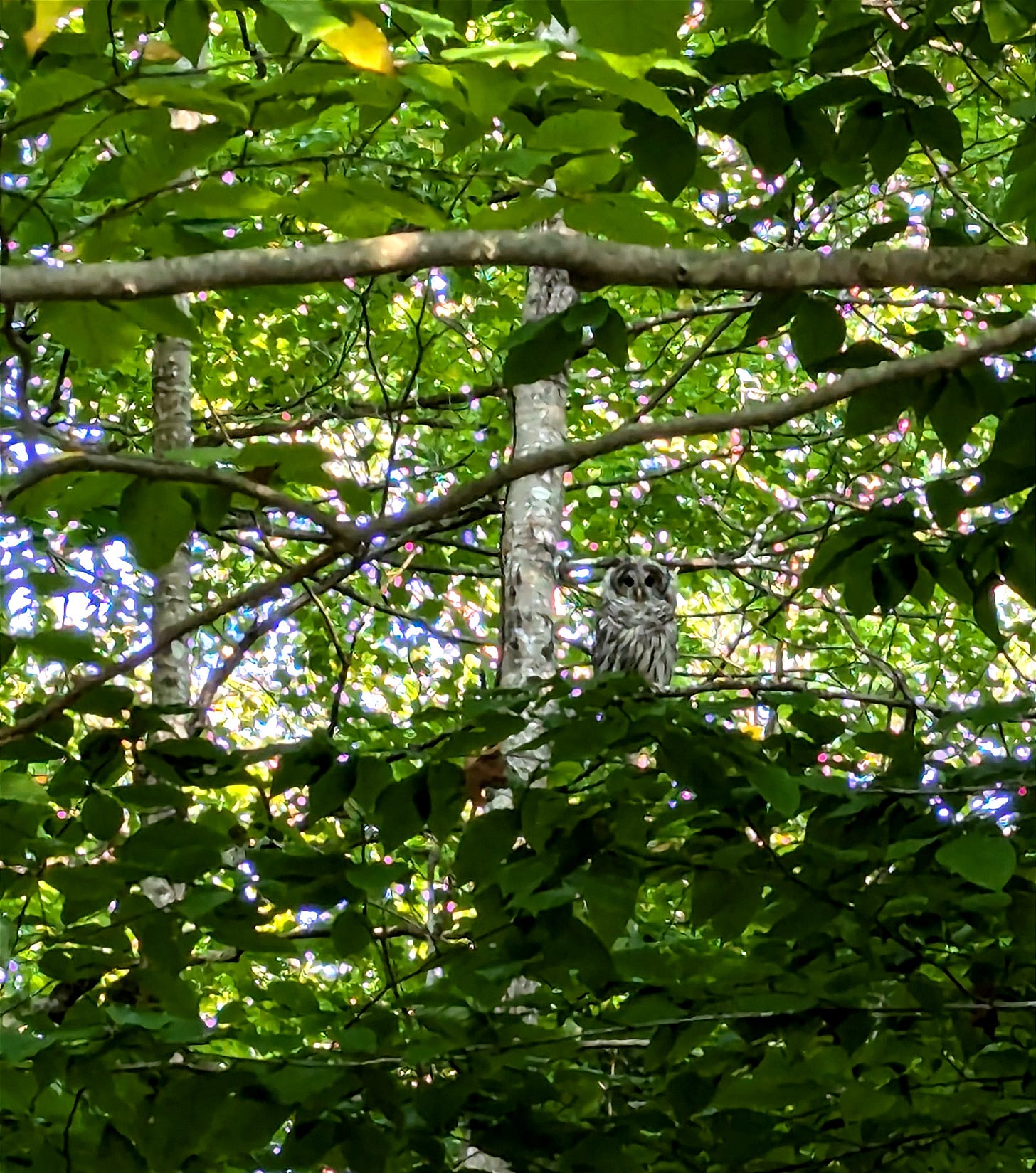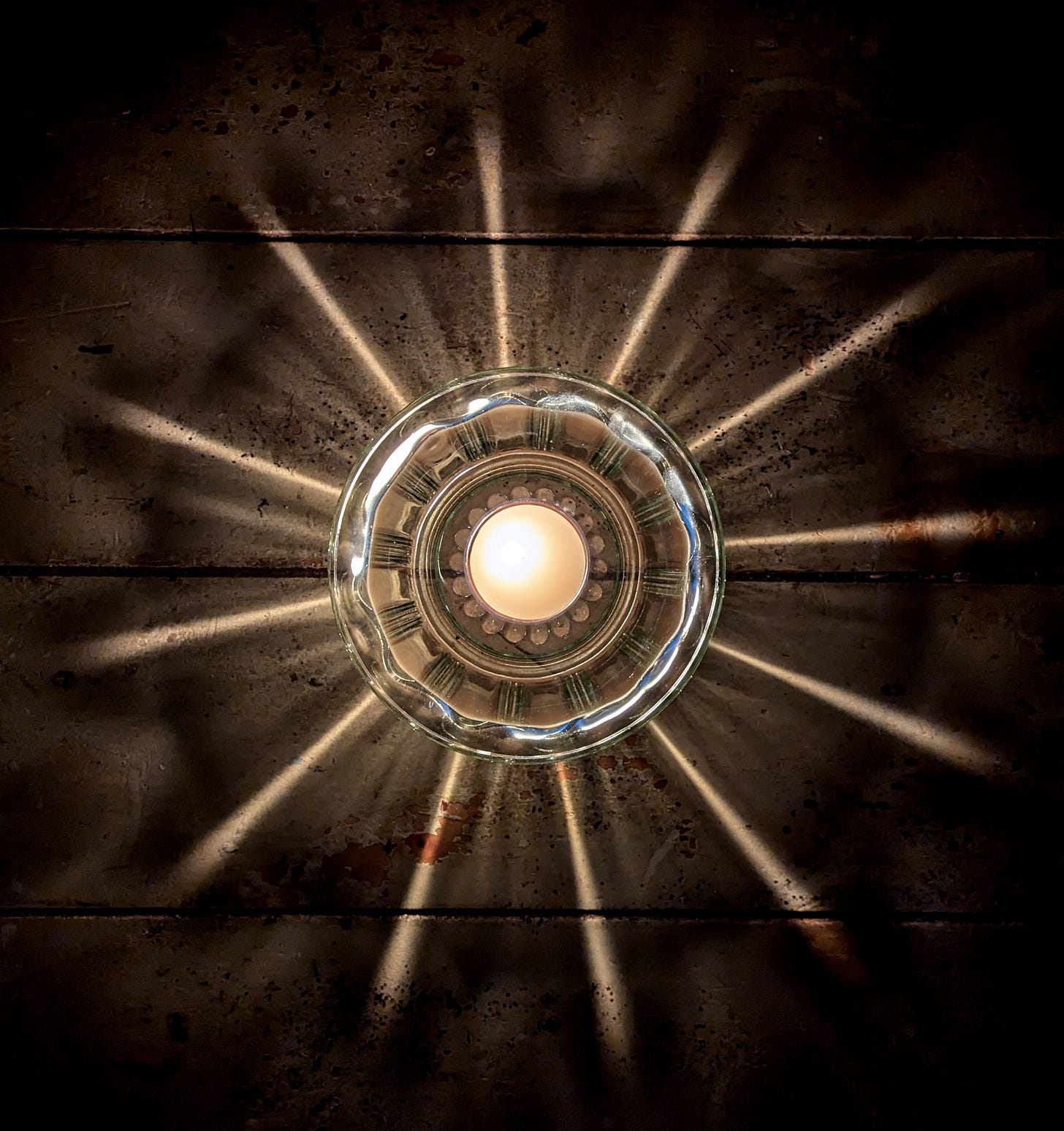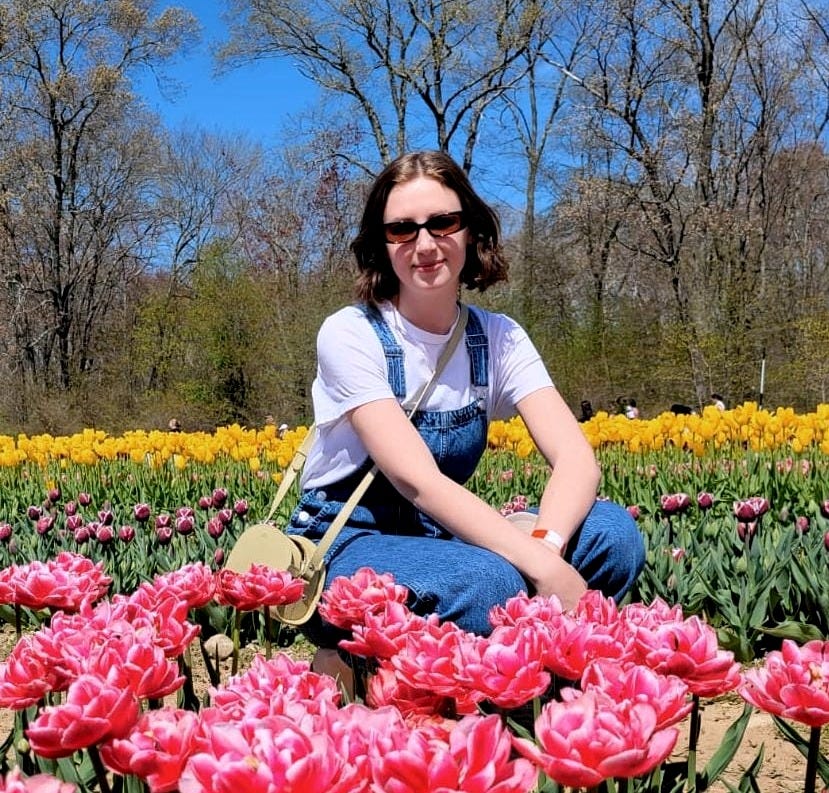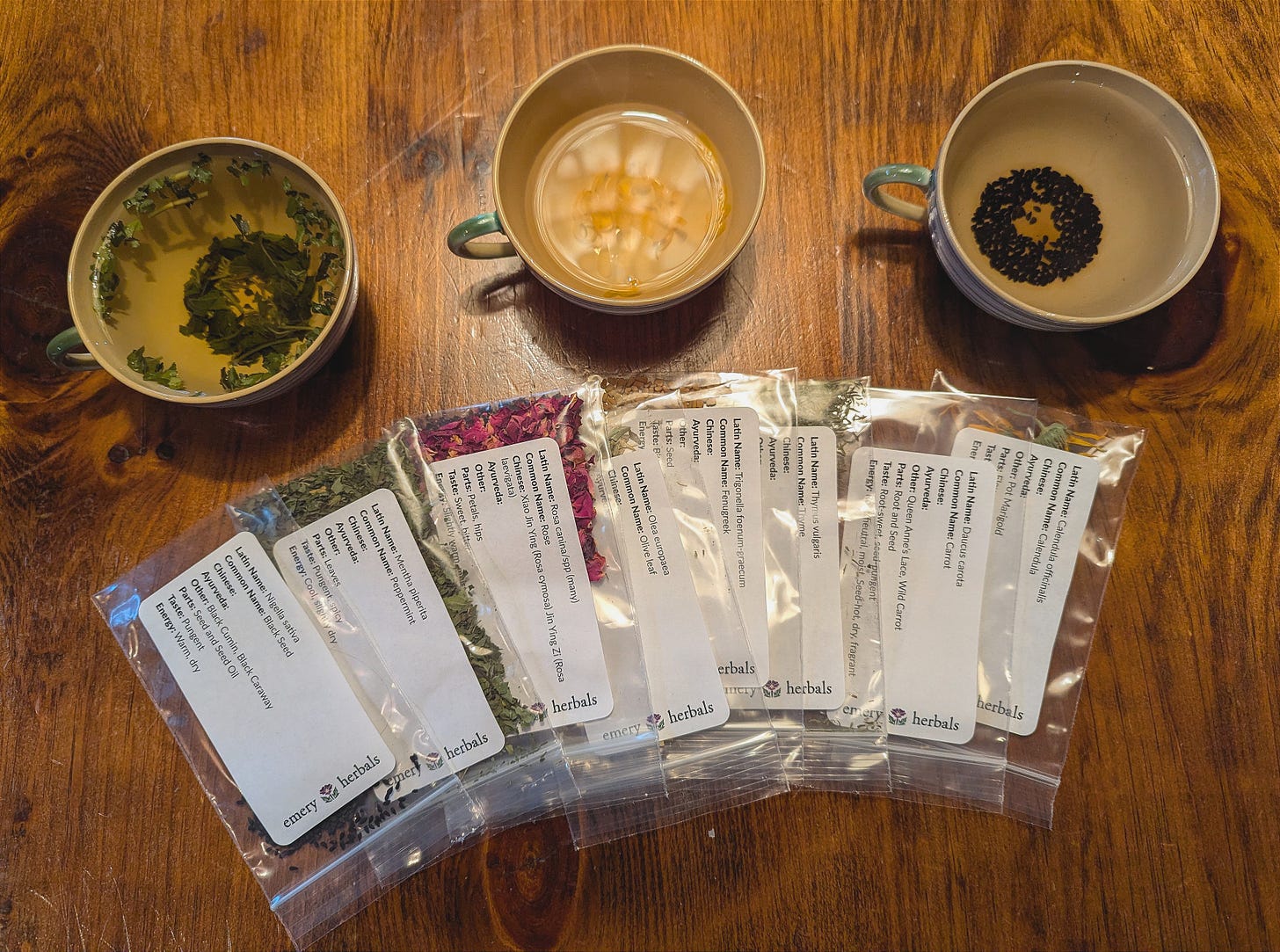An Earth-Wise Welcome
A radical, Earth-based exploration of self and health, for anyone who's fed up with the medical-industrial complex.

Hi!
Thank you for joining me here.
It’s aleksa (they/them) from the anti-oppressive herbal practice hale & hart, launching my new monthly Substack, Earth Wise Chronicles. I’ve shifted the medium/theme of my writing to reflect my growing need for accessibility and revolution, and I hope this resonates with you, too.
This newsletter is not a product or service; it is a space for me to envision a more wholesome world while occasionally venting about what fragments it. It’s not intended to be one-way communication, either. I’d love to hear about your thoughts and what makes you, you, at any point. No matter your capacity to engage, I appreciate you being here and hope that what follows sparks your interest.
All Earth Wise Chronicles content will be free. If you feel called to support my work beyond your invaluable readership, I invite you to share the newsletter and/or consider becoming a paid (donation-based) subscriber when this option becomes available in the coming months.
Radicle Imaginings
You might wonder about the newsletter’s name. “Earth-wise” speaks to two influences in my life: herbalist Matthew Wood and his books, starting with The Earth-Wise Herbal; and the documentary Crazywise, which focuses on Indigenous mental health perspectives, particularly on psychological crises as meaningful psychospiritual experiences.
What does the term conjure up in your mind?
For me, Earth wisdom is about feeling the land in our bodyminds and chronicling its archetypal stories, so that when we speak, we share its interconnected truths with societies starved by myths of human progress and exceptionalism.
So begins my chronicle of how we can climb out of the anthropomorphic hellscape and immerse ourselves in regenerative, healing ecologies—not rooted in money and individuality, but in soil and solidarity.
Earth Wise Chronicles will explore antidotes to the imperialist white supremacist capitalist cisheteropatriarchal hegemony that has slowly inflamed the Earth, and generations upon it. It is a call to (re)prioritise consent, autonomy and care; to mobilise our communities to navigate collapse and resist carceral systems; to decolonize medicine, public health and the mindscape; to centre Indigenous and Earth-based practices; to promote social, racial, ecological, disability, epistemic and other forms of justice; to share new/old ways of being, relating, growing; and to heal collectively, in communities of care.
I’m here to support world-builders, Earth-tenders and systems-destroyers as you care for you bodymindlands while navigating the polycrisis. Your existence is resistance.
You’ll see me focus on mental health—or what I prefer to call psycho-emotional health—as I do in my herbal practice, through the lenses of abolition, mad and critical disability studies. These praxes were the foundation of my self-designed master’s degree in anti-carceral public mental healthcare, which I completed in May.
You can also expect me to draw on my experiences as an herbalist, community health researcher/evaluator, organiser and disabled person as I examine what health and healing mean. I won’t focus on the global north/west, but rather highlight place-based traditions, lineages and movements from around the world.
I think it’s really important to name the lineages that guide our work. I’ve been deeply influenced by movement leaders and scholars such as Leah Lakshmi Piepzna-Samarasinha, Liat Ben-Moshe, Stefanie Lyn Kaufman-Mthimkhulu, Angela Davis, Dr. Samah Jabr, Honor Keeler, Sami Schalk, Mia Mingus, Beatrice Adler-Bolton, and many more “radicles” germinating ideas and priming revolutions.

Tending the Homebody
In the latter half of the year, I’ve spent more time moving slowly and reclining, making soups and journaling, knitting and decocting herbs. Every couple of days, I simmer herbs like wild cherry bark, licorice, and cayenne, savouring a cup or three, and pouring the rest into my nightly bath. My usual brew is warming, pungent, and sweet, with a little kick at the end.
In the process, I’ve realized that working with plant medicines internally/externally, at once, can amplify their medicinal actions and somehow create more symmetry. As another example of this, I’ve been applying tinctures as liniments to treat chronic pain while also taking them internally, with greater success.
It can be easy to pop encapsulated herbs—if they are accessible. They’ve helped me plenty of times, like when I needed relief from Lyme arthritis and went for isolated extracts of curcumin. These products are often classified as phytopharmaceuticals and don’t contain the whole plant medicine. Unfortunately, this can increase the potential for adverse reactions while reducing efficacy, because they lack the naturally occurring synergy of the full spectrum of constituents that provides checks and balances in a plant and our bodies when we take it.
Apart from one or two phytopharmaceuticals like silymarin, I only work with whole plant medicines now, personally and in my practice. Part of herbal medicine is the preparation process and sensory experience. I’ve learned that rituals like making tea or massaging oneself with an herb-infused oil can be as medicinal as the constituents themselves.
These rituals are everyday ways in which I resist capitalist hegemony. Through these soothing acts of sensory care, I’ve transitioned from viewing medicine as a commodity to a relationship, opening the door to co-regulating with more-than-human kin. Call me a folk herbalist, but I believe we can imbibe attributes of plants on a deeper level than their biochemistry, even when they are already preserved.
On another note, I’ve also been witnessing and gently resisting my self-directed bossiness, especially as it has misaligned with this darker time of year. While I intentionally deconstruct carceral logics in my life in various ways, I realised I was conforming to my self-imposed routine even when I was tired, bored and oppressed by it. The predictability made my bodymind feel safe, something I know a lot of neurospicy folks can relate to. Yet sometimes, a cocoon can start to feel like a corset. I decided to boycott aspects of my regime routine by bringing more flexibility into my work schedule (a luxury I have as a pt remote freelance consultant) and channeling a bear in hibernation mode.
I think that periodically re-evaluating what’s un/necessary can reignite energy and inspiration, not for the purpose of fueling more work, but for existing with prowess, for living magnificently.
May we all find liberation from external and internal regimes.
Year-end wishes:
Stay warm, rowdy, and COVID cautious,
Boil roots and eat soup,
And enjoy a long and languid rest,
Waking to decry genocide and fascism,
From bed or on the streets.
The winter is young, itself a present:
Like a weighted blanket,
Or a crystalline chrysalis,
To wrap around ourselves,
Until the spell of darkness breaks.
aleksa

Interweb Encounters
Mother of Many Children: A 1977 documentary by Alanis Obomsawin honouring Indigenous matriarchal cultures who are actively resisting colonisation in so-called Canada.
Queering Herbalism: A solid starting place for many herbalists who want to engage in healing work with structurally marginalised communities on the latter’s own terms, while ensuring that Indigenous healing legacies are remembered, restored and reclaimed.
Abolishing Carceral Society: A collection of ideas, poetry and art by revolutionary abolitionist scholars, activists and artists struggling against capitalism, patriarchy, colonialism, ecological crisis, prisons, and borders.
Herbalism and the State: A Workshops 4 Gaza virtual event led by Shabina Lafleur-Gangji, examining how fascist governments and people employ herbal medicine for public relations while committing atrocities.
Witches: (CW: Suicidality, psychosis, involuntary hospitalisation, transgenerational abuse and trauma) A documentary by Elizabeth Sankey on the intersections of motherhood, mental health, and the enduring archetype of the witch, focusing on perinatal depression and psychosis.
The Radical Potential of Psychosocial Disability Activism in the Global South: A book chapter from The Routledge International Handbook of Disability and Global Health by Akriti Mehta on the relevance of the emergent ‘psychosocial disability’ framework and identity in Global South activism.
H&H Offerings
Herbal Kin: Supporting Herbalists in Practice: Build your clinical herbalism practice in a peer-led, liberatory community. The first meeting is in January; registration is ongoing until then!
Herbal Consultations: Accessible, donation-based care rooted in anti-oppressive praxes.
The Inner Sanctum Course: Strengthen your capacity for emotional regulation and liberation after traumatic experiences through Earth-wise care practices.






